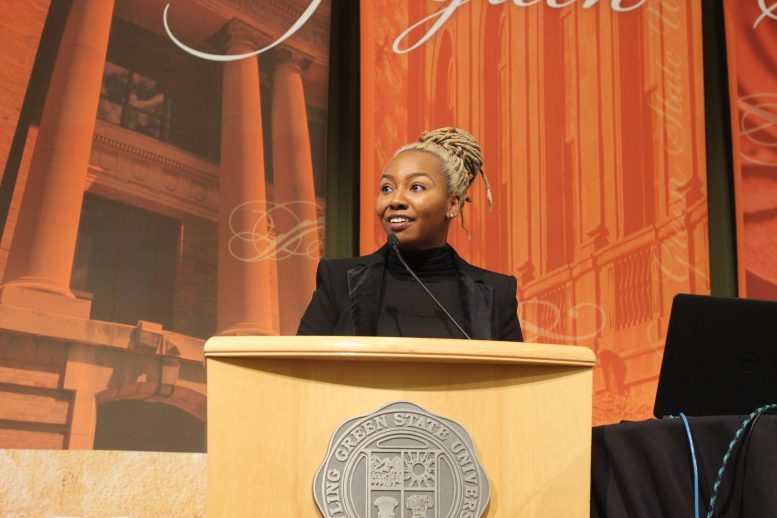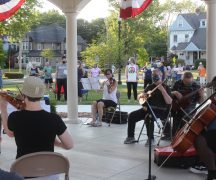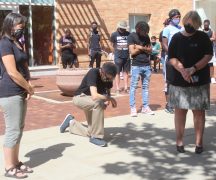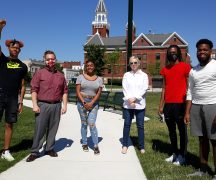By DAVID DUPONT
BG Independent News
When Opal Tometi stepped out of the movie theater the night of July 13, 2013, her phone lit up with messages.
The jury had found George Zimmerman not guilty in the killing of Trayvon Martin.
She was angry, she told an audience at Bowling Green State University Wednesday night. But she had steeled herself to this possibility.
What rose most prominently to her mind was her then 14-year-old brother, and what implications this had for him, his friends, and the world they live in.
Later that night taking to social media, she and others started using the hashtag #blacklivesmatter. With Patrisse Cullors and Alicia Garza, she helped found Black Lives Matter, marshaling social media in the cause of social justice. A new chapter in the fight for civil rights had begun.
Tometi was a speaker in Bowling Green State University’s Beyond the Dream series. The daughter of Nigerian immigrants, she is executive of the Black Alliance for Immigration Justice.
The Black Lives Matter movement came in response to the killings of African-Americans, often at the hands of police. These continued, Tometi said, even in a so-called “post-racial society.” The president was black. Oprah is a beloved TV personalty and entrepreneur. The demographics of the country are shifting with people of color becoming a larger segment of the population.
Yet black people are still being killed, and their white killers, such as Zimmerman, were not being held accountable.
While there is rage, Tometi said, the driving force behind the formation of Black Lives Matter was love. “Love for our people,” she said, “love for our communities. … It is an affirmative call. We can no longer tolerate the injustice. ”
Tometi acknowledged she is often chided with the question: Don’t all lives matter?
Yes, she said, all lives matter. That’s why she, Cullors, and Garza founded Black Lives Matter.
“Because I believe all lives matter I am going to fight like hell that black lives matter.”
The goal is to create “a democracy that works for everyone,” Tometi said. “We can’t have that unless black lives matter.”
Racism, she said, is built on deeply rooted prejudices. She cited the findings of a study done at UCLA that found whites and police tend to see blacks as older than they are, and that they feel less empathy with their pain.
These attitudes inculcate themselves into the law, she said. “These biases lead to state violence.”
Anti-black racism is, she said, a global phenomenon. The places most threatened by climate change are Haiti and countries in Africa.
Brazil is experiencing massive protests, she said, over extrajudicial killings.
But Tometi said she wanted to leave her audience with a message of hope.
“Hope,” she said, “is a discipline. When we feel bogged down … we have to be disciplined and look at things that will work.”
What works is action. What works is white people of conscience speaking up when they see injustice. What works are people organizing to “fashion a world we need,” a world free of violence where “housing is a right.”
This is a historic time with a capital “H,” she said, and people must decide what side of history they want to be on.
“The reality is, we don’t have much time,” she said. Referencing a quotation by Martin Luther King Jr., she concluded: “We must bend the arc (of the moral universe) toward justice to truly transform our world.”





